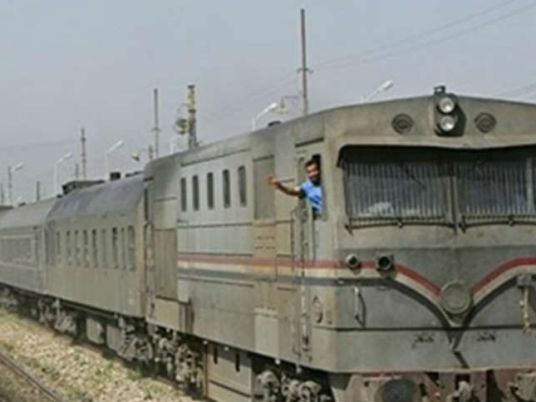
A number of citizens have sent complaints to Al-Masry Al-Youm about poor train services.
Doctor Hanan Farouk said in her complaint of March 5 that she bought a first class ticket for the 3pm service from Cairo to Alexandria.
According to Farouk, the air conditioning did not work until the last 20 minutes of the journey, despite complaints from many passengers.
When she arrived in Alexandria, Farouk and another passenger headed to the station supervisor's office to file a written compaint with the incident. The supervisor refused to sign the complaint or give them the relevant contact details to follow it up. According to Farouk, the supervisor said he would dispatch an engineer to check for malfunctions in the AC. If the engineer claimed it to be working properly their compaint would be cancelled.
"Our concern was not the technical malfunction, but the lack of AC for the duration of the journey. We do not know whether there was an actual malfunction or not," she wrote.
"When we insisted that he should sign the complaint, he told us to head to the customer service office, which was closed," Farouk said. Some junior employees wrote the complaint down with their own wording, but did not quote the customers' words.
Farouk added that the Wi-fi was also disconnected throughout the journey, as it had been the previous time she used that particular railway service. She stated that the first class service is not worth the LE75 she paid for her ticket, and that complaints of customers are not taken seriously.
Another railway user, Mohamed Galal, sent a complaint to Al-Masry Al-Youm on March 14 about the poor train service from Upper Egypt to Alexandria, describing poor maintenance, dirty floors and seats, and closed toilets.
"The ticket prices have been increased to address these kinds of issues. But in reality the service level has gone down," he wrote.
Travelling with his wife and children, Galal paid LE45 per head for second class tickets.
He sent photos capturing the "miserable" state of the train:
"One bathroom was shutdown and the other had no water. The corridors were dirty and the seats, shabby".




"All we got in return for our money was transportation, but it was undignified and disregarded our human rights as stated in the Constitution which we fought to ratify," he declared.
The train conductor had told Gamal that a company called Wataniya are responsible for operating the national rail services on behalf of the Egyptian Railways Authority, contracted by the government. Wataniya, according to the conductor, does not supervise its workers meaning duties and cleaning are neglected.
Another complaint was sent to Al-Masry Al-Youm by Mohamed Ahmed on March 14, saying the air-conditioned Cairo-Aswan train number 976 suffers from poor maintenance. Ahmed added that the railway officials ignore customers' complaints.
The AC was leaking water onto passengers from the ceiling, he wrote.
"When we complained, the train staff said they would call the engineer responsible for the train's maintenance, but he did not show up," Ahmed told Al-Masry Al-Youm.
"I swear to God, we were humiliated on the train," Ahmed concluded.

The Cabinet approved the liberalization of railway prices, starting July 1, 2015, in order to cover costs, saying there have been no increases in air-conditioned train ticket prices since 2007.
The decision caused anger at that time among passengers who complained of poor services despite the price increase.
In a statement in July 2015, railway authority chairman Ahmed Hamed explained that the aim of the higher prices is to cover costs and reduce the burden placed on the state, especially in the difficult times the country is facing. The price for spare parts, maintenance and fuel continue to increase and have amounted to more than a 300 percent increase, in addition to losses incurred by the authority requiring an amendment to the pricing policy to be commensurate with the real cost of transporting passengers, he added.
Deputy Transport Minister for railways, Wagdy Radwan, said in July that the authority's expenses have amounted to LE20 billion over the past four years, compared to approximately LE8 billion in revenues, with losses of up to LE12 billion pounds during the same period.
Edited translation from Al-Masry Al-Youm




